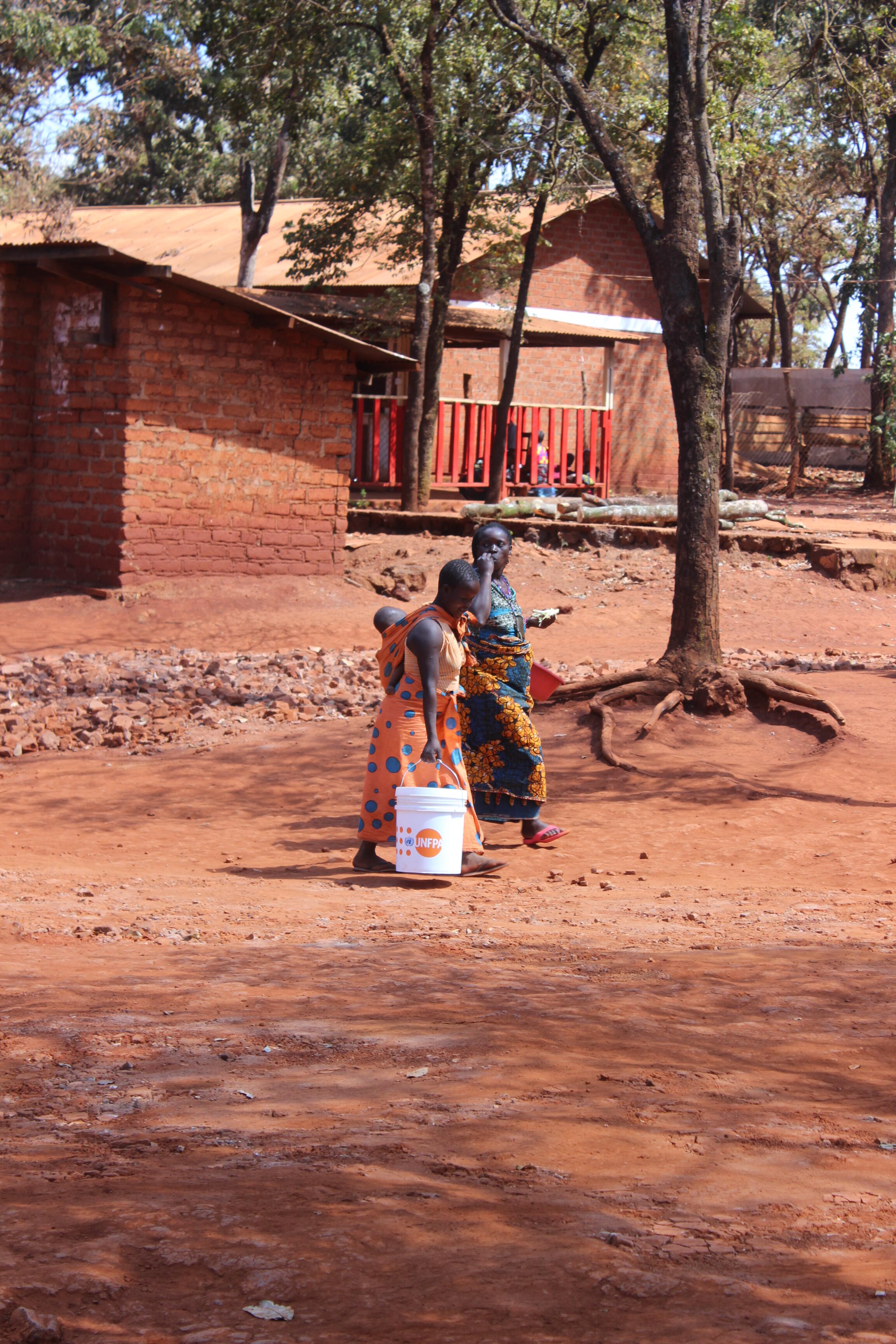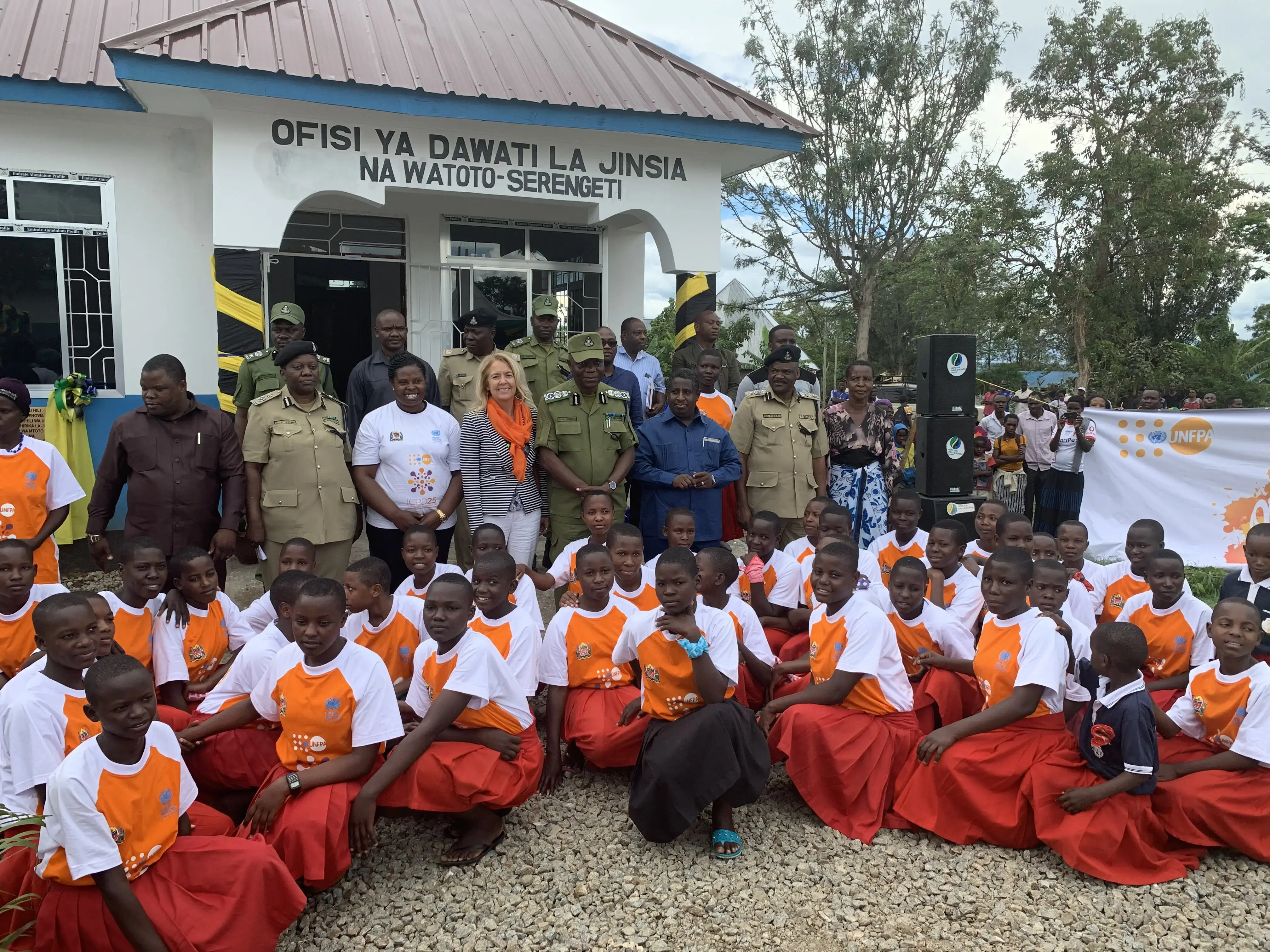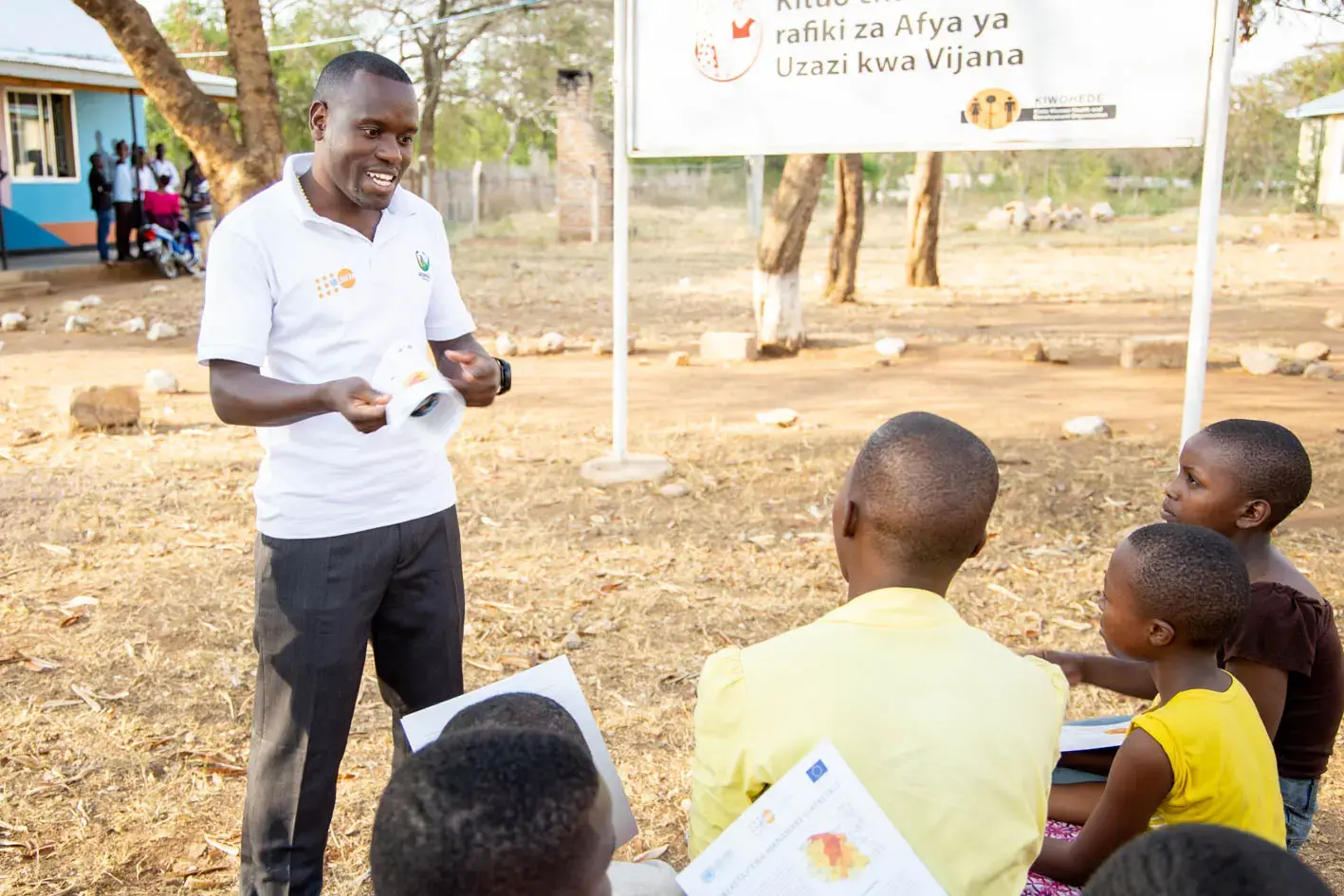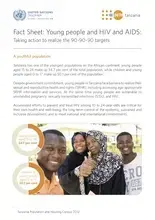It’s been eight months since Mpata* (26) gave birth to her second child at Nyarugusu Health Facility in Nyarugusu Refugee Camp. Two things are a constant reminder of that day – her baby boy Gateka and UNFPA’s branded bucket – in which her Dignity Kit was delivered.
“A child is a blessing from God, the happiness is everlasting”, Mpata says. And what is so special about UNFPA’s branded bucket? “It reminds me of a gift’s wrapping. It was given to me to help with my post-delivery hygiene,” Mpata replies. ‘Gift’ is a popular word used by women at Nyarugusu Refugee Camp to describe UNFPA’s-supported Dignity Kit distributed to women after they have given birth in the three refugee camps in Kigoma – Nyarugusu, Mtendeli and Nduta.
Mpata can still remember the contents of the ‘gift’ and lists the items packed inside the 20 litre bucket: sanitary pads, underwear, soap, toothbrush, toothpaste, perfumed body gel and soap for laundry. All these items are very important to women in the first few days after giving birth, she adds.
The importance of the 'gift' is also echoed by Ndaya* (22), a mother of one who also delivered at Nyarugusu Health Facility. Ndaya explains that most of the women in the camp are very poor and there is no money for the products needed to maintain personal hygiene after birth. “Here almost everyone who delivers in this camp depends on this ‘gift’ to maintain their hygiene, at least in the first few weeks after giving birth” says Ndaya.
Ms. Winifrida Rwehumbiza, Reproductive and Child Health (RCH) Manager, Tanzania Red Cross Society – a UNFPA implementing partner – has worked at Nyarugusu Health Facility since UNFPA first started distributing Dignity Kits to mothers post-delivery five years ago. Winifrida (Mama Winni) reiterates the sentiments of Mpata and Ndaya of the importance of the kit for women in the camp.
“Before UNFPA introduced these kits women found it extremely challenging to maintain their personal hygiene after delivery,” says Mama Winni. As a healthcare provider she was aware that women were using unsafe materials when they were menstruating, unable to afford sanitary pads. “When they came to the facility to give birth I kept wondering how they could keep themselves clean after delivery and whether they would go home and use the same unsafe materials.” Mama Winni says she is relieved that Dignity Kits are now being distributed to women following birth. She continues: “When women are discharged after delivery they are instructed to keep themselves clean by washing themselves and their clothes regularly, by managing their blood flow and also washing their babies - with this kit all of these things are now possible.” Mama Winni also notes that a side benefit of distributing the kits is that there has been an increase in the number of women delivering at health facilities – deliveries at facilities are now at 98 per cent across the three camps.
Azizi Kiluma, RCH supervisor at Nyarugusu Main Hospital, says another benefit of the post-delivery kit is that it’s a good entry point to provide SRH information, particularly on voluntary family planning, to husbands when they come to pick up their wives from the hospital.
Dr. Sunday Rwebangila, UNFPA’s Sexual and Reproductive Health Coordinator, Kasulu Field Office, says that, on average, 1,100 Dignity Kits are distributed to women post-delivery every month in the three refugee camps in Kigoma. And women from the local community who deliver at health facilities in the camps also receive a kit. In 2018, a total of 11,389 Dignity Kits were distributed to women in Kigoma.
By Ali Hamad, Kasulu.
* Names have been changed.





